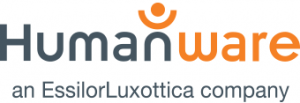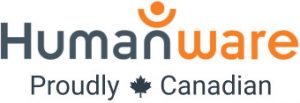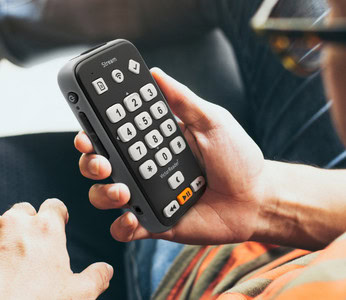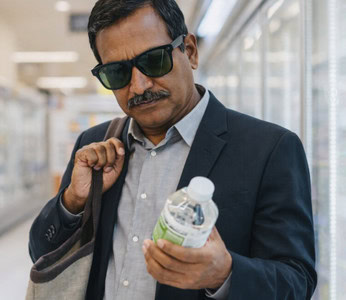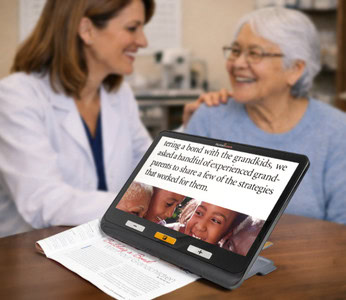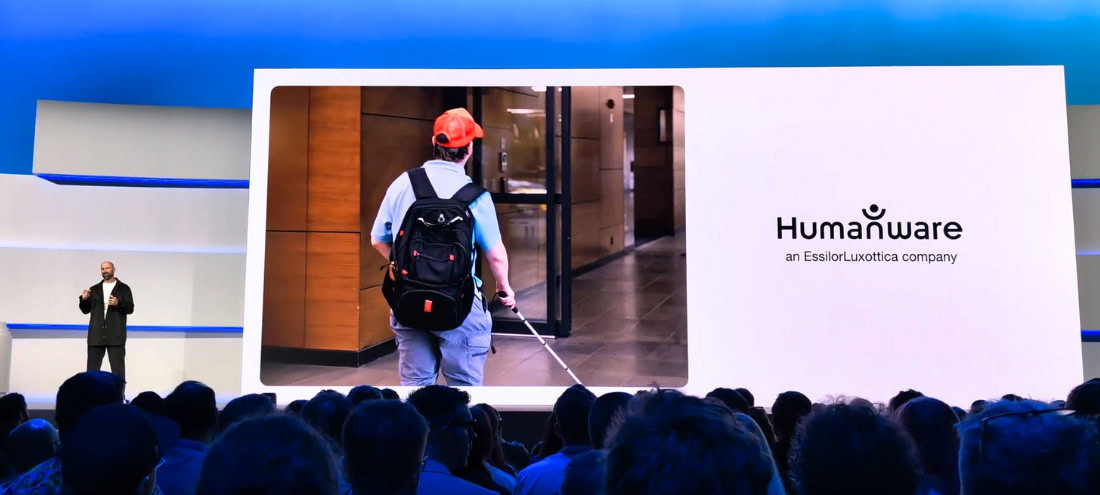
At Meta Connect 2025, HumanWare brought accessibility into one of the world’s most-watched technology forums. During the Developer Keynote segment, Louis-Philippe Massé, Head of Products Innovation & R&D, presented our work on real-time navigation guidance for blind and low-vision people. Alongside him, François Boutrouille, Emerging Technologies Leader, contributed expertise in technical sessions. The event highlighted what has always driven HumanWare: building technology that expands independence and makes everyday tools more inclusive.
Our path to this moment began long before smart glasses became mainstream. For years, HumanWare engineers and researchers have been exploring AI-powered navigation, scene recognition, and wearable interaction. The focus has always been practical: what features will blind and low-vision people trust and use in real life? That process, prototype, test, re-fine, has led to functions now in development for consumer glasses platforms. They include text-to-speech reading, instant text actions, live translation, and conversation focus. Each is designed to reduce barriers in daily communication, work, and travel.
One of the most promising prototypes is Follow Me. With a simple command, the user can select a companion and receive discreet audio cues to stay oriented and close. Whether following a colleague across a busy campus or keeping pace with a guide in a station, Follow Me makes walking together easier and more independent. As François explains: “Navigation tools often focus on obstacles. Our aim was to focus on people — helping users remain connected to those they choose to follow.”
Rachel Ramos, Blindness Products Specialist at HumanWare, shared her perspective as both a professional and a user of assistive technology:
“As a blind user of assistive technology and an extensive traveler, I have benefited greatly from HumanWare’s inventions in this field. The two most recent announcements from the Meta Connect event certainly had me following along. The ‘follow’ function being developed for the Meta glasses will be such a time-saver! No more airport assistants, restaurant servers, or a well-meaning person providing guidance walking away, because I will be able to follow them with the glasses.
Hearing verbal directions in a crowd is rather difficult, and this new function will eliminate that challenge. When it comes to crossing streets safely, the more confirmation one can have, the better! I am looking forward to having the ability to have hands-free observation of the crosswalk and the walk/don’t walk sign, along with solid orientation and mobility skills), and reading the traffic, as to when it’s time to cross the street. This freedom and independence are such a boost of confidence.
As part of the HumanWare team, I have so many wonderful opportunities to test new technologies and offer input to steer innovation. Having a moment on stage at a global event to discuss these features coming to the wearable space, and how these features will assist blind and low vision users is a testament to strong leadership and development. I am thrilled to be part of the conversation and product delivery as these innovations are brought forward.”
The work shown at Meta Connect is still in prototype. These functions are being developed through Meta’s early SDK programs, and distribution paths are being defined. What matters now is that accessibility is part of the conversation at this scale, and that HumanWare’s expertise is shaping the outcomes.
For more than 25 years, HumanWare has led in accessible technology, from braille literacy and digital reading to GPS navigation and AI-enabled magnification. Meta Connect 2025 confirmed that this leadership now extends into wearable platforms, reaching millions of people. By collaborating with global partners and staying rooted in the needs of blind and low-vision communities, HumanWare continues to show that accessibility is not an afterthought but a driver of innovation.
